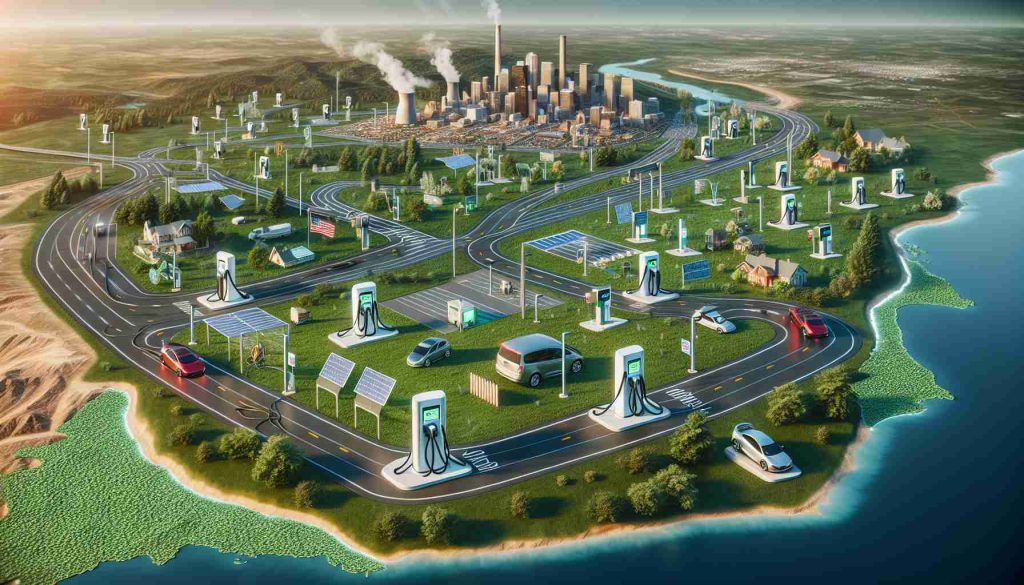The Future of Electric Vehicles: A Paradigm Shift in the Automotive Industry

The automotive industry is on the brink of a revolution, driven by the rapid adoption of electric vehicles (EVs). This transition towards electrification is not only a response to environmental concerns but also a strategic move to secure a leading position in the global market. As the United States embarks on this journey, it faces the urgency of catching up with other nations that have already made significant progress in the EV sector.
Projected Market Growth and Industry Landscape
Current market analyses forecast a remarkable surge in electric vehicle sales in the coming years. By the end of this decade, EVs are poised to capture a substantial share of new car sales worldwide. Factors contributing to this growth include advancements in battery technology, cost reductions, extended driving range, and stricter regulations aiming to reduce emissions.
This anticipated expansion of the EV market presents immense economic opportunities for various industries. Manufacturers, service providers, and job seekers stand to benefit from the surge in demand for electric components, batteries, charging infrastructure, and renewable energy sources. Both established players and newcomers in the automotive industry are reinventing themselves to capitalize on this transition, resulting in an evolving and highly competitive landscape.
Challenges on the Path to Electrification
While the future of electric vehicles seems promising, significant challenges must be overcome to facilitate a smooth transition. One of the prominent hurdles is the insufficiency of existing charging infrastructure. To accommodate the anticipated increase in EV usage, an extensive network of charging stations is required. Standardizing charging types and speeds is another crucial aspect to alleviate consumer concerns and enhance compatibility between vehicles and charging stations.
The impact of widespread EV adoption on the electrical grid also poses significant challenges. The current infrastructure may not be equipped to handle the increased demand without substantial upgrades or innovative solutions. This has prompted the exploration of smart-grid technologies and the integration of renewable energy sources to ensure grid stability and efficiency.
Furthermore, the production of EV batteries necessitates the use of valuable raw materials such as lithium, cobalt, and nickel. Securing a sustainable and ethical supply chain for these resources is vital to mitigate environmental and social risks associated with their extraction.
Innovation and Skill Development
To address the challenges mentioned earlier, the EV industry is witnessing a wave of innovation in both technology and business models. Companies are developing solar-powered charging stations and exploring the concept of electrified roadways, where vehicles can charge while in motion.
Additionally, the growth of the EV sector necessitates a skilled workforce capable of supporting the industry’s demands. Training programs and collaborations between educational institutions and industry players are essential to prepare individuals for professions such as EV maintenance, charging station installation, and grid modernization.
Government Initiatives and Collaboration
Recognizing the significance of EV adoption, the U.S. government has allocated substantial funds for the development of EV infrastructure. However, the success of these initiatives hinges on effective collaboration between public and private sectors, as well as academia. By fostering partnerships, sharing knowledge, and pooling resources, stakeholders can work together towards achieving sustained growth and advancement in the EV industry.
Conclusion
The transition to electric vehicles represents a pivotal moment for the United States to reaffirm its position as an automotive industry leader. This paradigm shift not only shapes the future of transportation but also underscores the country’s commitment to a cleaner and more sustainable world. To delve deeper into the innovations driving this transformation, visit the websites of organizations such as NOVA Charge and Beam Global, which are actively working on solutions to the charging challenges faced by EVs.
[embedded content]
Frequently Asked Questions (FAQ)
![Marcin Frąckiewicz]()
مارسين فراكيويتش مؤلف ومدون مشهور، متخصص في الاتصالات عبر الأقمار الصناعية والذكاء الاصطناعي. وتتعمق مقالاته الثاقبة في تعقيدات هذه المجالات، مما يوفر للقراء فهمًا عميقًا للمفاهيم التكنولوجية المعقدة. عمله معروف بالوضوح والشمول.

مارسين فراكيويتش مؤلف ومدون مشهور، متخصص في الاتصالات عبر الأقمار الصناعية والذكاء الاصطناعي. وتتعمق مقالاته الثاقبة في تعقيدات هذه المجالات، مما يوفر للقراء فهمًا عميقًا للمفاهيم التكنولوجية المعقدة. عمله معروف بالوضوح والشمول.

